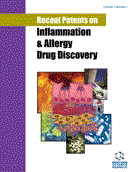Abstract
Mild or moderate hypothermia is a useful therapeutic method for improving the outcome for patients who have suffered brain injuries including traumatic brain injury and strokes, as well as secondary damages such as neuroinflammation and edema. The feasibility and safety of therapeutic hypothermia have been evaluated in experimental settings and clinical trials. Because the efficacy of therapeutic hypothermia, however, is dependent on the cooling method, application time, duration, and strategies, a continuous effort for obtaining optimal standard protocols of controlling temperature and the documentation of hypothermic devices and drugs are required. Here, we discuss the most recent hypothermia applications in brain injury and related diseases, and review the latest patents in hypothermic devices and cannabinoid-based hypothermia-inducing drugs. Ultimately, we conclude that a localized hypothermia may overcome the limitations, risks, and side effects of systemic hypothermia, and the combination of local hypothermia and drug treatment may improve clinical benefits.
Keywords: Hypothermia, brain, inflammation, neuroinflammation, cannabinoid, central nervous system, Traumatic brain injury, Stroke, Craniectomy, human hepatocytes
 28
28


















